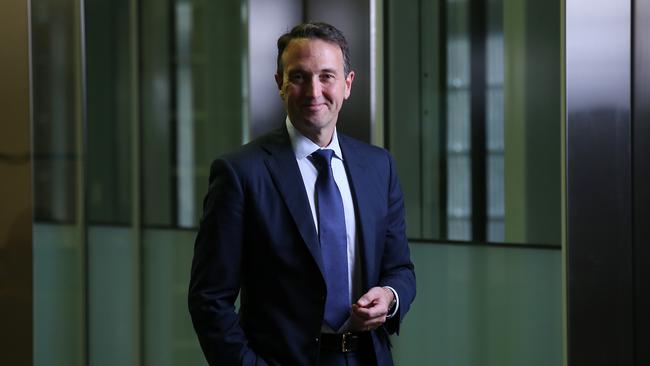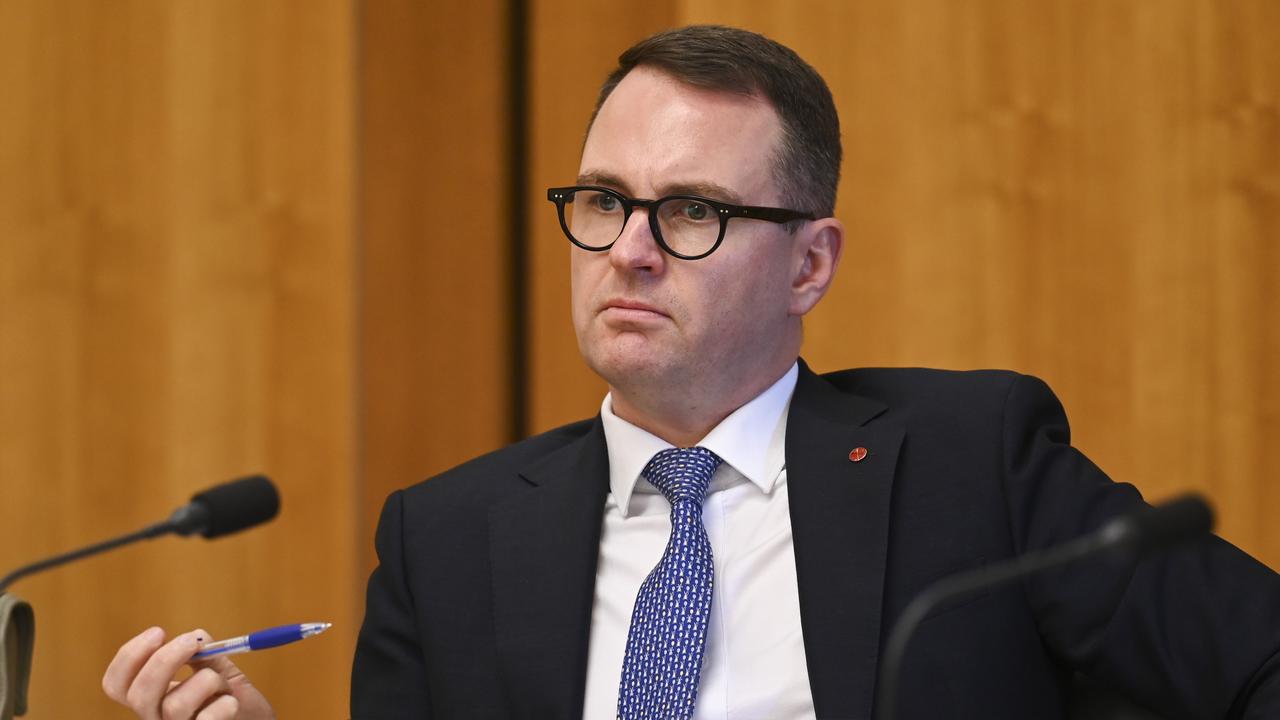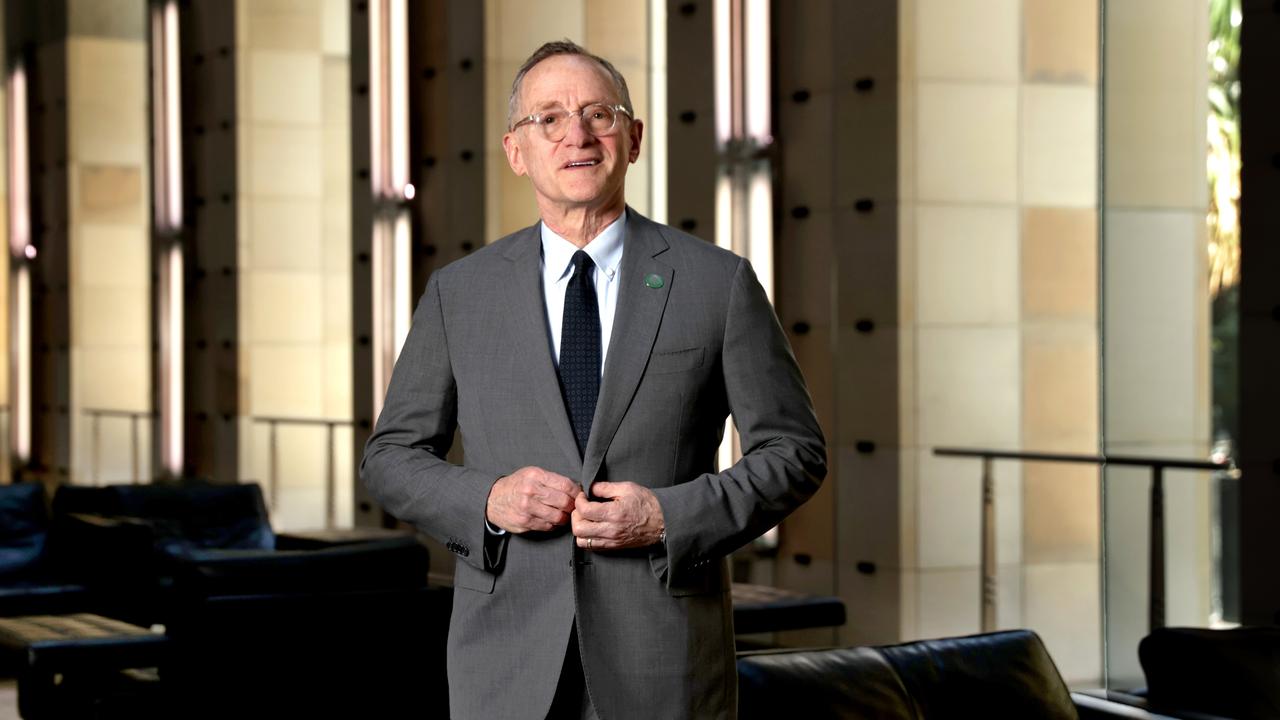
Boral boss Zlatko Todorcevski has laid down a targeted 70 per cent earnings improvement and delivered ahead of estimates, but the company’s stock price sold off on Tuesday after delivering earnings above market estimates.
Challenger boss Richard Howes delivered a result that missed market expectations by a whisker yet his stock price was slammed 14 per cent to $6.18. Boral was down 7.6 per cent at $5.
Both stocks have run hard since the last result, 27 per cent and 35 per cent ahead of market respectively, and the weight of expectation on both was high because the market collectively figured the stocks have already run well so needed to add something to maintain the run.
Both failed on that score for somewhat different reasons.
Todorcevski has impressed with his intent and understanding. He is running a company that has several gold medals to its name for its ability to raise expectations then disappoint.
He was careful not to talk up the stock.
When he releases his full-year earnings he will take a major step forward by laying down firm carbon reduction targets, once again underlining how business is several steps ahead of Canberra on the issue.
Todorcevski, in sharp contrast with the word games in Canberra, says simply carbon reductions are a reality and the better the company achieves the cuts itself the better it will be for shareholders.
Away from the spotlight it has already made giant strides with products like its Envisia concrete used in major projects like the infamous Crown casino in Barangaroo, the Punchbowl Mosque and the Stokehouse restaurant in St Kilda.
The low-cement concrete is part of the attack on so-called scope 3 emissions, which are those emitted by customers.
The company will have more fulsome targets, but in the last year reduced its own emissions from 2.4 million tonnes in 2019 to 2.2 million last year.
Low-carbon concrete is one of those products that is better for the environment and on paper better for earnings because more customers will want it.
Todorvevski wants to increase earnings before interest and tax by $300m, which is the amount he and finance ace Tino La Spina (ex-Qantas) chose because it will deliver return of funds of 10 per cent through the cycle.
It compares with 4.3 per cent last financial year and as a marker has not been topped in the last decade so after reporting earnings before interest and tax of $324m in 2020 and forecast earnings this year of $462m it is a meaningful jump.
The Australian division has long managed better returns like the 12.4 per cent posted in the first half of 2020 and the 10.5 per cent last half on a 20 per cent fall in earnings.
US earnings by contrast increased 22 per cent to $73m, but returns increased from 3.9 per cent to 6.5 per cent.
The company has hired BAML to look at the sale of its US assets but the move, while being urged by shareholders like Tanarra and Ryan Stokes, is not a given.
The Biden administration is promising big infrastructure spending, which means more roads and more demand for Boral products like Fly Ash.
The offshoot from coal-fired power stations, among other sources, is available elsewhere including exports to the US and underground and, given the high demand for the product, is something Todorcevski likes almost as much as his predecessor.
Boral is a work in progress almost continuously, but if the COVID recovery is intact in the US then now may not be the best time to sell.
In Australia, the company faces low immigration numbers and an oversupplied multi-dwelling apartment market, which is a negative.
The market was hoping Challenger’s Howes would deliver an earnings upgrade, which he didn’t, but the actual numbers released were pretty much in line with estimates.
One day’s trade doesn’t set the rule book, but on the surface it was an extraordinary overreaction to what was in most respects a solid result.
There were some known negatives, like a dividend at 9.5c against 17.5c this time last year, but this was widely factored in.
The fact is the momentum for Challenger is still there, with its funds management business Fidante enjoying net inflows of $5.8bn, triple year-ago levels.
A report suggested Howes had considered selling that business, which is true to a point because the board briefly considered the option at the height of the crisis when its stock price had hit a low of $2.95 in March last year.
But this was a momentary look at the height of the crisis and the business is very much a loved part of the portfolio.
Challenger is well poised to take account of the fact the government has finally woken up to the fact the superannuation system is good at collecting funds but not so good at helping you spend the savings.
By the middle of next year all funds will be required to have a retirement product in place to help this process, and Challenger’s annuities are an attractive inclusion in the mix.
Late last year Howes added a small bank, MyLife MyFinance, to his portfolio to increase the diversification on offer.
He is keen to add some ability to add bank deposits to his mix — albeit from a small base given the purchase price was $35m.
The good news is growth across the portfolio, but for some reason the market could only see bad news.
Macquarie’s quality
Macquarie’s Shemara Wikramanayake has continued the unenviable task of revamping the management at the bank with impeccable skill, which will ultimately test the quality of the staff internally.
On Tuesday it was her successor Martin Stanley who wanted to step down after nearly three years running Macquarie Asset Management.
The highly regarded London-based Stanley will take on the division chair and be replaced by Hong Kong-based Ben Way, which shows the flexibility in the company given that Wikramanayake ran the division from Sydney.
Banking division boss Mary Reemst will retire and her job will be taken by former IR boss and group treasurer Stuart Green under the doyen, Greg Ward.
All of which is change which Macquarie so far seems to handle without a hitch, thanks to its quality backbench and its relative longevity in the company.



